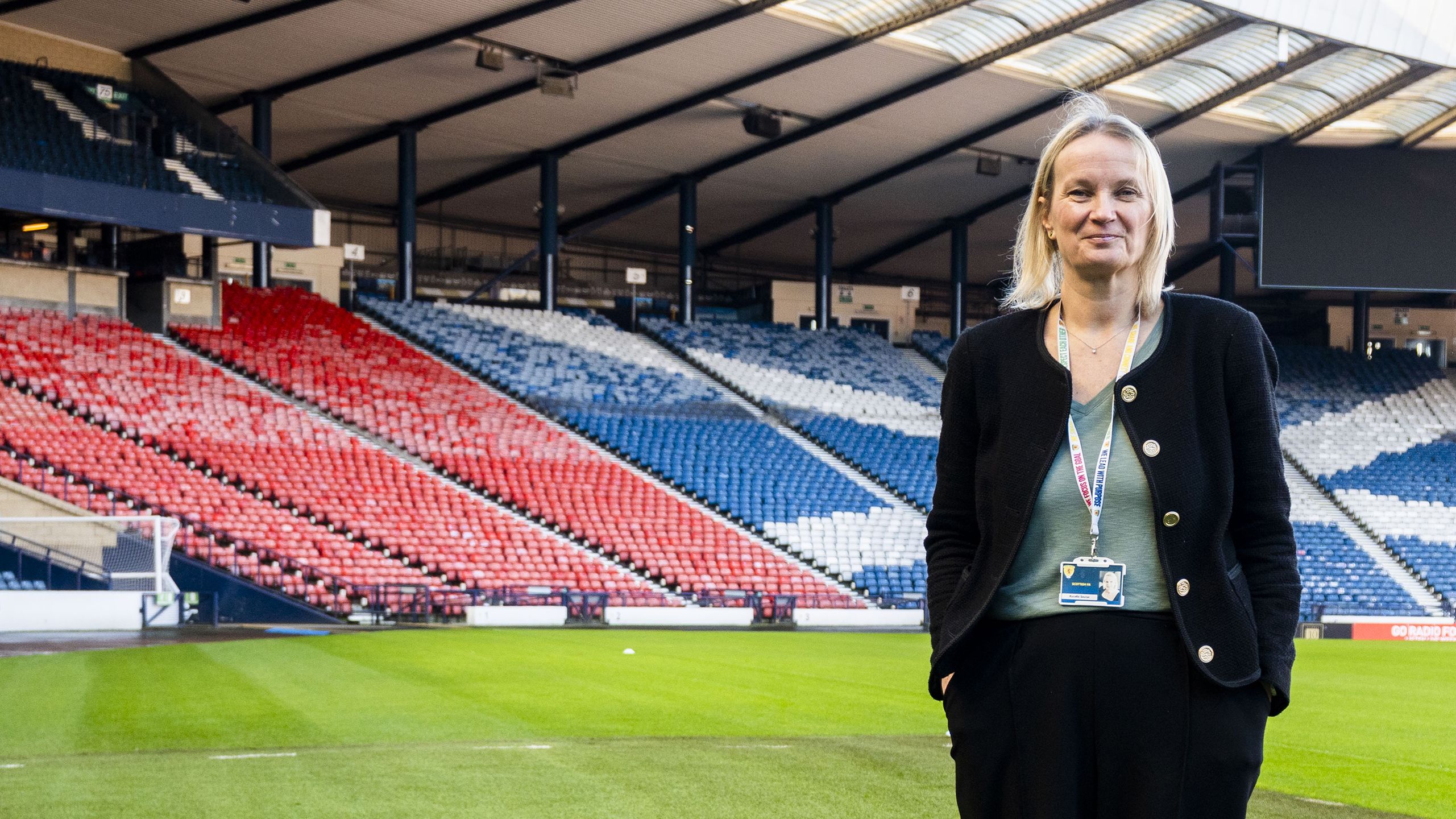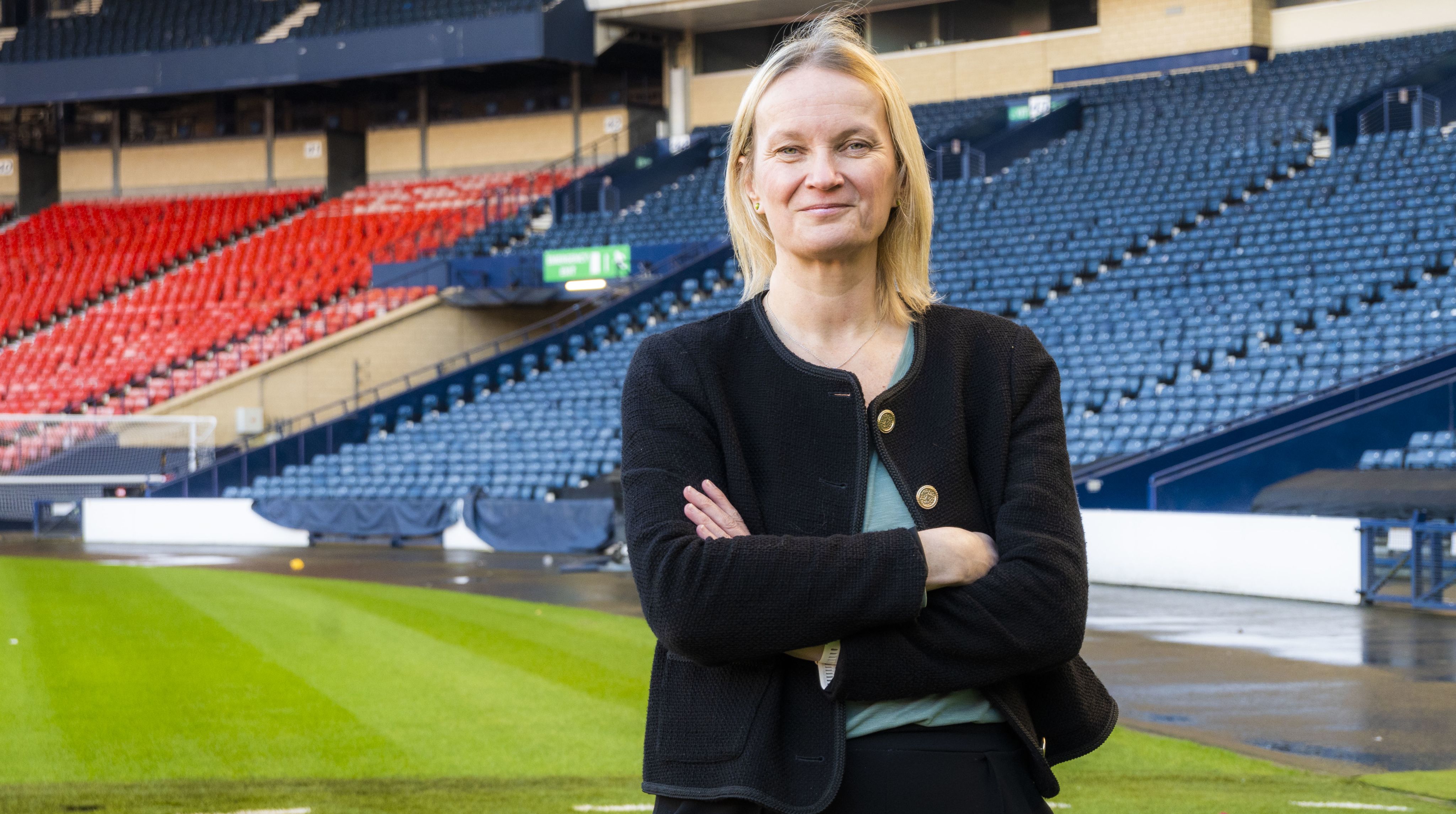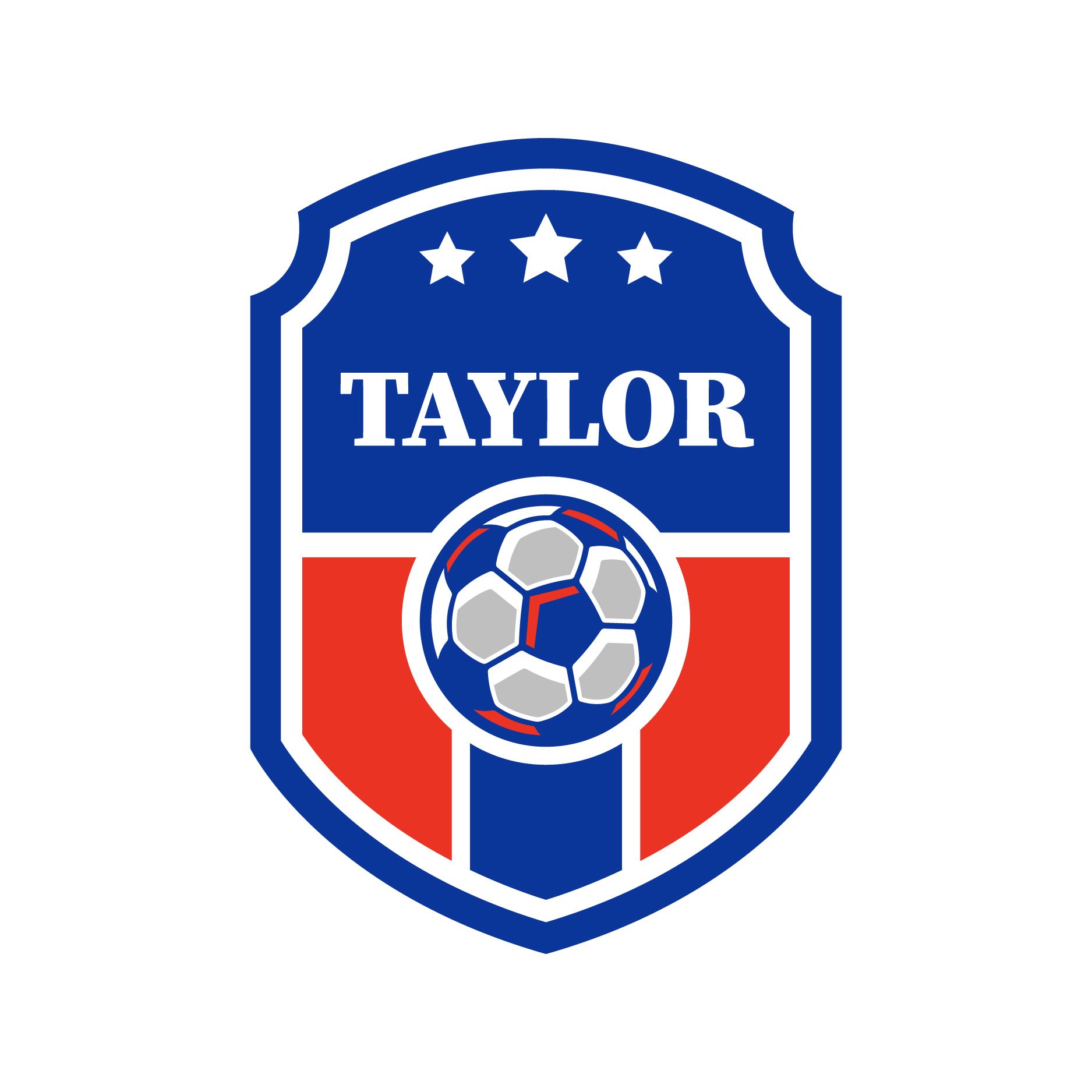
This summer, at Euro 2024, the Scotland men's football team is hoping to do something it has never managed before – to reach the knockout stages of a major football tournament.
Pride has been restored on the pitch, but there will be plenty of other work going on to show that the Scottish Football Association is making continued progress off it, too. That includes growing the women’s game, as well as the rollout of a new IT system.
While no amount of preparation can account for somebody missing a penalty, a key player sustaining an injury, a cruel deflection or a hotly disputed disallowed goal, the opposite is true when it comes to IT systems. We assume that technology will function as expected – as can be seen from the meltdown from users that accompanies the outage of a major social media site or search engine.
“My training opened my eyes to all the different types of businesses out there”
The person leading the team delivering a new football administration system is CFO, Rucelle Soutar CA. That it falls within her remit is itself a reflection of how far the role of CFO has evolved since the system received its last major overhaul in 2012.
For Soutar, it is a part of the job that she clearly enjoys – and she brings a lot of experience to bear from her previous roles, most recently as Chief Operating Officer for the Royal Edinburgh Military Tattoo.

Moving platform
Soutar is a textbook example of how the CA qualification provides the platform to take a career in directions one wouldn’t immediately associate with chartered accountancy.
“I actually studied physiology at university,” she says. “I thought, I can’t see myself being in a lab for the rest of my life. Maths was part of my degree. At that point, I decided doing accountancy was the right path towards having a solid career and ICAS was the obvious choice – it was, and still is, the most prestigious accounting body.”
After qualifying, she decided to join an independent practice in Dumfries. “It gave me a really solid grounding in small to medium-sized businesses,” she says. “One moment I was trying to fathom out a set of accounts from a shoebox of invoices, the next I would be auditing the digital records of a finance company.
“It opened my eyes to all the different types of businesses out there and I really enjoyed learning about all of them. That training has sat with me throughout my career in terms of simply being able to adapt and be flexible.”
Eventually, Soutar decided she wanted a job where “I could run my own ship”. So she applied for the role of Head of Finance at Edinburgh Zoo in 2000.
“I could hear the gibbons from my office!” she recalls. “I went in at a time when there were no digitalised records and I got involved in the IT system. It was a great experience because I was in the nitty-gritty. You learn how everything across an organisation works.”
After four years at Edinburgh Zoo, she spent a decade as Finance and Operations Director at ProjectScotland, an organisation which matches young people with volunteering roles among charities across the nation, before taking on another Head of Finance role at another famous Scottish institution, the Royal Edinburgh Military Tattoo. In 2018, she made the leap up as the COO.
“For any CA, that’s an interesting transition,” she says. “My remit was broad when I arrived, but becoming COO meant covering departments where I was obviously less experienced. I was being asked to make a decision on a marketing campaign or branding. And unlike finance, there isn’t a correct answer.
“A lot of it simply comes down to asking the right questions and putting your own biases to one side. It was daunting, but there is a point in your career when you know you’re ready to make the step up.”
One of her standout memories during that time was taking the Tattoo to Melbourne, where they played four nights, and Wellington in 2016. “Other than AC/DC, we sold more tickets than any show held at the Etihad [Docklands] Stadium in Melbourne,” she says, proudly – the artists they outsold include U2 and One Direction.
The Tattoo was second only to the Rugby World Cup in terms of the number of external visitors it brought to Wellington. Traditionally, however, its CEO has always come from a military background. So, when Soutar was approached for the SFA’s CFO role in 2020, she felt it was time for a new challenge.
“We were the first major event in Scotland to open up after Covid and the scrutiny on us from both the government and the media was enormous”
Although she is passionate about the Tartan Army, you won’t find Soutar arguing about who will make their squad this summer. But her adaptability and experience were immediately invaluable to the SFA when it came to hosting Euro 2020 matches at Hampden Park in summer 2021.
“I stepped in as a project lead because the person in that role had to take a leave of absence,” she says. “We were the first major event in Scotland to open up after Covid and the scrutiny on us from both the government and the media was enormous.
“Looking back now, I consider myself fortunate to have that opportunity. It was a great experience to be in the thick of it.”

Education
Studied physiology at Glasgow University, then postgraduate diploma in accountancy at Strathclyde
1994
Trains with Carson & Trotter, qualifying in 1997 and soon after joining Springfords in Edinburgh
1999
Works for Morrison Construction as Assistant Corporate Development/Risk Manager
2000
Appointed Head of Finance at Edinburgh Zoo
2004
Moves to ProjectScotland as Finance and Operations Director
2014
Joins Royal Edinburgh Military Tattoo as Head of Finance, promoted to COO in 2018
2020
Made board trustee at National Galleries of Scotland
2021
Becomes CFO at the Scottish FA
2023
Joins board of Royal Edinburgh Military Tattoo

Time to roll
Although there won’t be anything close to that level of oversight for the IT rollout, the scale of the task is infinitely greater. The rollout will happen over the summer during a window of relative downtime for football across Scotland, and the system will log the details of more than 500,000 clubs, teams, players, coaches and referees.
“We have to decommission the old system, which is bespoke and in-house, and start the new one which means moving to an external provider. It sits within my role and I’ve got a great programme manager.
“It’s going to be a big change for a lot of people, although it will be positive, albeit such changes always come with some growing pains.”
Soutar says the world of hybrid working is making the transition a lot easier to communicate. Everyone is accustomed to Zoom calls and webinars, which reduces the need to navigate the logistical difficulties of visiting thousands of professional and amateur clubs in Scotland.
By qualifying for back-to-back Euros, the national team has brought in millions in additional revenue. Soutar points out some of that figure will go on travel and the team’s training camp at a Bavarian ski resort, but one obvious area for growth is the women’s game. Here, though, Soutar sounds a cautionary note, as more girls and women joining teams means a greater demand for playing facilities.
“We need to increase the availability of pitches and improve infrastructure to continue growing the girls’ and women’s game,” she says. “To do that, we need to increase attendances because that will attract broadcasters, which will in turn generate more interest among sponsors, which means more revenue will come in. It’s a cyclical thing.
“It will be really interesting to see how women’s football develops. It will grow but it will take some time.”
Soutar has seen the effect qualifying for a major tournament can have. By making it to Euro 2020, the men ended a run of failing to get past the qualifiers that stretched back to the World Cup in 1998.
“When the men’s team qualified for Euro 2024, there was such a massive buzz about the place,” she says. “So it can be a bit of a rollercoaster. With every success you celebrate a bit harder, and with every disappointment it stays with you a bit longer.”
In life, timing is often everything, but it is especially true in football. So far Soutar’s timing has largely been exceptional. Everyone associated with the game in Scotland will be hoping that run of form continues.

Moneyball – three more CAs in the beautiful game

James Taylor CA, CFO, Glasgow Rangers
James Taylor CA joined the Scottish football giants in September 2023. His arrival has coincided with the club’s renaissance on the pitch under coach Philippe Clement. Off the pitch, Taylor has said his priorities are to get the club on a more stable financial footing, address a £10.5m pre-player trading loss, and ensure that Rangers don’t fall foul of Financial Fair Play rules.

Mark McGhee CA, Head of Finance and Operations, Blackpool
Blackpool were a byword for financial mismanagement under the ownership of the Oyston family, which included a high court ruling that they had engaged in “illegitimate stripping” of the club, by funnelling payments of more than £25m to their own businesses. Now under new ownership, and with the experienced Mark McGhee CA – formerly of Leicester City FC and Wasps and Harlequins rugby teams – at the financial helm, they reported a profit in March 2023.

Connor Slattery CA, Head of Finance, Stockport County
In 2011, County dropped out of the Football League for the first time in more than a century. They returned in 2022, so when Connor Slattery CA joined last summer from sportswear manufacturers Castore, they were already on the up. That trajectory has continued with their new Head of Finance, and they are currently in the League Two promotion spots.




